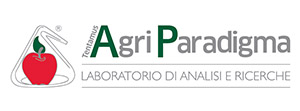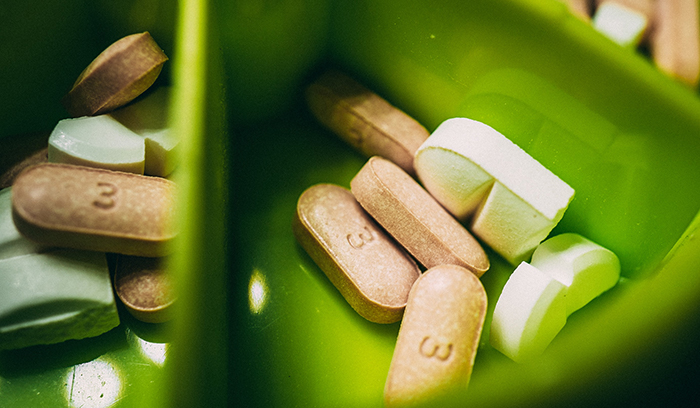In order for you to safely market your dietary supplements, they must be analytically verified. This is how you ensure that your products are marketable – i.e. free of contaminants and residues, correctly labeled and that they contain the claimed contents of vitamins, for example. The Food Supplements Ordinance regulates the specifications for the labeling and composition of food supplements for selling in Germany.
Which products are food supplements?
Food supplements belong to the food and are according to the food supplement regulation
- intended to supplement the diet with vitamins and trace elements
- to be composed of nutrients (vitamins or minerals) or other substances with a nutritional or physiological effect and must be present in concentrated form
- marketed in dosed form for ingestion in measured small quantities.
They are mainly sold in the form of tablets, capsules, ampoules or powders, and are clearly distinguished from medicinal products, as the latter are intended to alleviate or prevent disease or discomfort. Dietary supplements are intended only to supplement the diet.
Under which conditions can food supplements be sold?
In order for you to be able to sell your dietary supplements properly, there are a few points to consider, which we have summarized for you below:
- The products must be safe. Manufacturers and distributors are responsible for the safety of their products.
- Consumers may not be deceived
- All products must be intended for sale in the EU and comply with EU (or national) laws and regulations.
- They must be registered with the Federal Office of Consumer Protection and Food Safety BVL
- The products must not contain any medical claims
What do you have to pay special attention to?
There are recurring problems that you, as a manufacturer or distributor of dietary supplements, should be aware of in order to avoid them in your products. These include:
Contamination with bacteria
Dietary supplements can be contaminated with bacteria. To ensure that no pathogenic germs have entered the product during the production chain, microbiological control is essential to ensure consumer health. Plant-based dietary supplements, for example, are more frequently contaminated with salmonella, which can pose a health risk. Dietary supplements contaminated with Salmonella can lead to a Salmonella infection for the consumer with symptoms such as diarrhea, abdominal pain and headaches.
Problems with the declaration and health claims
Due to the fact that food supplements belong to the group of food products, the requirements of Regulation 1169/2011 are required for labeling. According to Article 9, the mandatory information are:
– The name of the food supplement
– A list of ingredients
– A note on substances that may cause allergies and intolerances
– The amount of certain ingredients or classes of ingredients in %.
– The net quantity
– The best before date
– Information on storage and use
– Company name and address
– Country of origin or source according to Article 26
– Instructions for use
– Nutritional information
In addition, according to the Food Supplement Regulation, the following information must be included on the label:
– For the name of the food product, the word “food supplement” must be indicated.
– The name(s) of the nutrient(s) or substance(s) that characterize the product and have a nutritional and/or physiological effect
– The amount recommended for daily consumption (in servings)
– The warning statement, “Do Not exceed the recommended daily intake stated.”
– A statement that dietary supplements should not be used as a substitute for a balanced and varied diet
– A statement that the product must be stored out of the reach of young children
Health Claims
Another important point when labeling food supplements are the nutrition and health claims. Only nutrition and health claims approved under EU Regulation (EC) No. 1924/2006 may be used on the label. This ensures that consumers are protected from misleading or deceptive claims on products.
Nutrition claims are claims that indicate that the product has certain nutritional properties if it contains or does not contain a certain nutrient, or if the nutrient is increased or reduced. For example, “low fat” or “source of dietary fiber” are nutrition claims. For a food supplement to be labeled as a “source of dietary fiber,” it must contain at least 6g of dietary fiber per 100g or 3g of dietary fiber per 100 kcal.
Health claims are claims that indicate that the product or an ingredient is related to health. Regulation (EU) 432/2012 lists all permitted health claims that relate to the reduction of disease risk or to children’s development and health, and their conditions. For example, the health claim “Linoleic acid contributes to the maintenance of normal blood cholesterol levels” may be used if the food has min. 1.5 g of linoleic acid per 100 g and per 100 kcal.
Do you need assistance in the jungle of labeling regulations? No problem – the experts at Tentamus Group are always up to date on the latest legal requirements and will be happy to advise you. We also check the declaration of your food supplements in many languages.
Over- and underdosing
Directive 2002/46/EC specifies exactly which vitamins and minerals may be used in food supplements. These should be dosed neither too high nor too low.
If the dosage of vitamins and minerals is too high, it can lead to undesirable health effects. The BfR has published recommendations for maximum amounts of vitamins and minerals in dietary supplements and some countries such as France and Denmark have national regulations, but there are no binding EU-wide laws. Exceeding the recommended daily intake of magnesium, for example, can lead to diarrhea and laxative effects.
In order for the vitamins and minerals contained to be mentioned on the packaging at all, a reference quantity must be observed. Regulation EU No. 1169/2011 Annex XIII lists the reference amounts for vitamins and minerals.
For other substances such as amino acids, essential fatty acids or dietary fiber, there is no guideline on which may be used in food supplements.
We support you in ensuring that your products comply with the required reference quantities for vitamins and minerals and that overdosing can be ruled out. Our experts advise you on the legal situation and examine the products with regard to the amounts of vitamins and minerals they contain.
Ethylene oxide
In the recent past, residues of ethylene oxide have been found repeatedly in various products and, among others, also in food supplements. Ethylene oxide is a pesticide which is banned for use in the EU.
The laboratories of the Tentamus Group are experts in the field of analysis of pesticide residues such as ethylene oxide and the conversion product 2-chloroethanol. The analysis is offered accredited by GC-MS/MS with a limit of quantification of 0.01mg/kg. The analysis takes 3-5 working days and express analysis with results within 12 hours is available on request.
Titanium dioxide
Titanium dioxide is a food additive with the number E 171, which is often used in coatings of food supplements due to its white opacity or to protect the ingredients from external influences. The EFSA has evaluated the health risks based on titanium dioxide as a food additive and assumes a mutagenic effect. In France, the use of titanium dioxide has already been banned; a decision for the EU is still pending.
The laboratories of the Tentamus Group always keep you up to date on possible bans regarding titanium dioxide in food supplements, are always available to advise you and check your products for the content of titanium dioxide.
Selling dietary supplements on online platforms
For manufacturers and distributors to be able to sell their products as dietary supplements on various online platforms such as Amazon, Kaufland, Alibaba, etc., a number of things need to be paid attention to, because legal regulations also apply here, just as in retail.
According to the BfR, undeclared dietary supplements have often been sold via online stores in the past, so that controls on the part of the authorities are to be intensified here. Whether the products comply with legal requirements and are safe will also be checked, just as in retail. In addition, mandatory information must be made available on the website of online stores even before the purchase is concluded.
So that your products can be sold safely and legally correctly in online stores and you do not have to fear expensive recalls or being blocked by the store operator, we support you! We have the know-how and are happy to advise you.
If you have any questions about our service, please feel free to contact us. Our expert will be glad to help you
Nicole Schröer
nicole.schroeer@tentamus.com
+49 30 206 038 133

